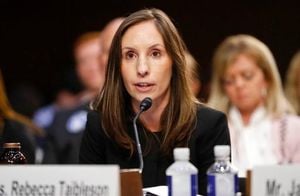In a year marked by sweeping changes to India’s educational landscape, policymakers, educators, and students alike are grappling with reforms that touch everything from language instruction and curriculum content to the very heart of civic and legal literacy. Nowhere is this more evident than in Karnataka, where the state government’s push for a Karnataka-specific education policy is converging with national debates over textbook revisions and the role of legal education in schools.
On August 15, 2025, Karnataka Chief Minister Siddaramaiah took the stage during the 79th Independence Day celebrations to announce a bold new direction for the state’s schools. “For the first time, steps are being taken to frame a comprehensive, Karnataka-specific education policy which will lead to holistic development of our youth,” Siddaramaiah declared, as reported by The Indian Express. The move follows the submission of a detailed report by a commission chaired by Prof Sukhadeo Thorat, established in October 2023 as part of the Congress party’s pledge to replace the BJP-led Centre’s National Education Policy (NEP).
At the heart of the new policy is a two-language formula: Kannada or the student’s mother tongue will serve as the medium of instruction up to Class 5, with English and other languages available as additional options. The commission’s recommendations, submitted on August 8, 2025, envision a school system that not only preserves linguistic heritage but also equips students for a globalized world. The policy’s language provisions have drawn support from the Kannada Development Authority (KDA), whose chairman Purushotham Bilimale urged the government to fully adopt the state education policy for transformative change over the next decade. “If the govt implements the comprehensive SEP, which includes a detailed time-bound action plan to address many of the current issues in the education sector, it will undergo significant transformation in the next 10 years,” Bilimale wrote in a letter to the chief minister and education ministers, as covered by Times of India.
The KDA emphasized that the commission’s bilingual policy does not exclude languages other than Kannada and English. According to the SEP report, Kannada will mandatorily remain as the first or second language, and students interested in other tongues can study a third language of their choice. The hope, as articulated by Bilimale, is that “the new policy can instill the strength needed to face the challenges of the new generation.”
But language is just one piece of Karnataka’s ambitious educational overhaul. The state government is investing Rs 2,500 crore to set up 500 new Karnataka Public Schools (KPS) in 2025, alongside upgrades to first-grade colleges and polytechnics. Thirteen new technical education institutions are also in the pipeline. Siddaramaiah highlighted a slew of welfare measures: “We are providing nutritious food to 53 lakh children, ragi malt, milk, eggs or bananas on all school days, and a hot midday meal. We have increased honoraria for guest teachers and midday meal staff, prioritised teacher recruitment, upgrading first-grade colleges and polytechnics at a cost of Rs 2,500 crore, and are establishing 13 new technical education institutions.”
Vocational training is another priority. Under the motto “My Career, My Choice,” vocational guidance programmes have been rolled out in 150 government schools for students in grades 8 to 12, benefiting 35,000 students so far, with plans to expand to 2.3 lakh students. The government is also strengthening and expanding Government Tool Room and Training Centres (GTTCs) and Multi Skill Development Centres (MSDCs), aiming to turn them into “institutions of pride for our state and our youth.”
Social and economic empowerment initiatives extend beyond the classroom. ‘Akka Cafes’—run by self-help women’s groups—are being set up across Karnataka, including a notable example in Haveri district operated by members of the transgender community.
While Karnataka forges its own path, the national conversation is dominated by the NCERT’s recent overhaul of middle and high school history textbooks under NEP 2020. According to India Today, the Class 8 textbook “Exploring Society: India and Beyond” has eliminated crucial chapters on the decline of the Mughal Empire and the rise of regional powers like the Marathas. The revised curriculum now leaps from the end of Mughal rule directly to British colonial dominance, omitting transitional decades that shaped the subcontinent’s political landscape. Notable figures such as Tipu Sultan, Haidar Ali, and the Anglo-Mysore Wars have vanished from Class 8, while a comprehensive two-page table of Mughal emperors and their policies has been dropped from Class 7. Class 12’s “Theme 9: Kings and Chronicles, The Mughal Courts” is also gone.
The remaining Mughal content has been reframed, with Babur described as “ruthless,” Akbar’s reign characterized as a mix of “political accommodation and coercion,” and Aurangzeb noted for “religious intolerance” alongside military feats. A new “No-Blame” footnote instructs students to study historical figures in context rather than making moral judgments, reflecting NEP 2020’s emphasis on critical thinking.
NCERT officials defend these changes as necessary “rationalisation” to prevent curriculum overload, arguing that states can supplement regional content as needed. Critics, however, contend that these omissions strip away historical complexity and deprive students of a nuanced understanding of India’s composite past. The debate has exposed deep divisions between advocates of streamlined curricula and historians wary of selective storytelling.
Meanwhile, another crucial front in India’s education reform is the push to mainstream legal studies. On August 17, 2025, the Central Board of Secondary Education (CBSE) announced a revamped legal studies framework for Classes 11 and 12, set for rollout in the 2026-27 academic session. The new syllabus will cover recent legal milestones, including the repeal of triple talaq, the striking down of Section 377, the removal of the colonial-era sedition provision, and the enactment of three major criminal codes: Bharatiya Nyaya Sanhita (BNS), Bharatiya Nagarik Suraksha Sanhita, and Bharatiya Sakshya Adhiniyam.
Legal experts and educators have hailed the move as essential for fostering a democratic, equitable, and participatory society. Supreme Court advocate Tahira Karanjawala told India Today, “Legal education in schools represents a fundamental pillar for strengthening a democratic, equitable, and participatory society. In the context of current challenges—social polarisation, misinformation, and declining trust in institutions—the early development of a legal culture in my view has become a necessity.”
Yet, there are calls to go further. Many argue that legal studies should be compulsory, not just an elective, and that basic legal concepts should be introduced alongside civics from primary school onwards. “A basic education on fundamental rights from the primary classes is important,” Karanjawala advised, suggesting that civics curricula be revisited to integrate legal literacy.
Internationally, countries like the United States, United Kingdom, and Australia often include introductory law courses in school curricula, aiming to familiarize students with legal systems and the workings of justice. But as Indian experts point out, India’s socio-economic and cultural context demands a curriculum that addresses its unique historical and social realities—caste, communal tensions, and colonial legal legacies among them.
Whether these reforms—regional, national, and legal—will truly transform Indian education remains to be seen. Their success will likely hinge on how well they are implemented in classrooms, and whether they foster critical thinking, contextual understanding, and a genuine sense of citizenship among the next generation.
For students in Karnataka and across India, the coming years promise a school experience that is both more rooted in local identity and more attuned to the demands of a rapidly changing world—a balancing act that may well define the future of Indian education.





